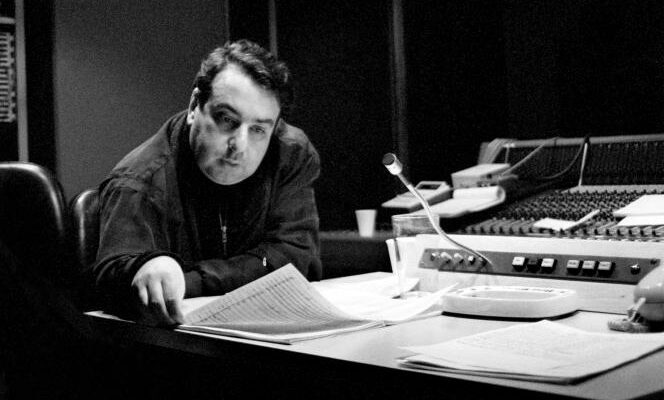Sarde is such a familiar name for moviegoers that it has appeared twice in the credits of films by Claude Sautet, Bertrand Blier, Bertrand Tavernier, André Techiné or Jacques Doillon. There is Alain, the producer, and his older brother, Philippe, a prolific composer, which is recalled by the six volumes contained in his Film music anthology. 50 years of cinema. That is around one hundred excerpts drawn by him from more than 250 feature films: “I appealed to my memory and remembered the films that helped me make this career”he says, to sum up this synthesis carried out over two years.
The box begins with the tube that made it known, this Helen’s Song (words by Jean-Loup Dabadie) of infinite sadness, interpreted by Romy Schneider in dialogue with Michel Piccoli, for Things of life (1970), by Claude Sautet. The bond with the filmmaker will be unbreakable, with the sole exception ofA heart in Winter (1992), which will make way for the chamber music of Maurice Ravel. Nothing to get upset about. Rather an honor for this heir to the pre-war French school whose writing he married with his love of jazz.
With a quarter of a century of difference in age, Sautet had been intrigued by the confidence of this young twenty-something who had received him in silk pajamas in his apartment in the Arcades des Champs-Elysées, in Paris. Without images, Sarde immediately proposed a piano theme and then allowed himself to give an opinion on the editing. His record of service was reduced to two pieces of music (including the tango of I have the ball in the ceiling), for Regina. He was not a first choice, but, Georges Delerue being unavailable, one of the producers of things of life had whispered the name of the son of an antique dealer friend.
The preview precipitated a destiny. “At 8:30 p.m., no filmmaker present in the room knew him. At 10 p.m., everyone wanted to work with him, me first.remembered Pierre Granier-Deferre, another faithful, who soon hired Sarde to The cat (1971) and The Widow Couderc (1971).
At the origin of “La Grande Bouffe”
The 1970s and 1980s made him the essential composer of French cinema, while Maurice Jarre, Michel Legrand and Georges Delerue worked for Hollywood. He imposes his bulimic and whimsical character to the point of storytelling. His taste for provocation was satisfied in 1973 by the scandal of Feast, especially since his legendary appetite is at the origin, even if the versions have often varied: “What Marco Ferreri says in the film happened in reality, during a meal with my brother, producer Jean-Pierre Rassam and Tavernier. It’s one of the most exceptional adventures I’ve had in cinema: written before, my rumba was used by Ferreri on the set. »
You have 74.35% of this article left to read. The following is for subscribers only.
